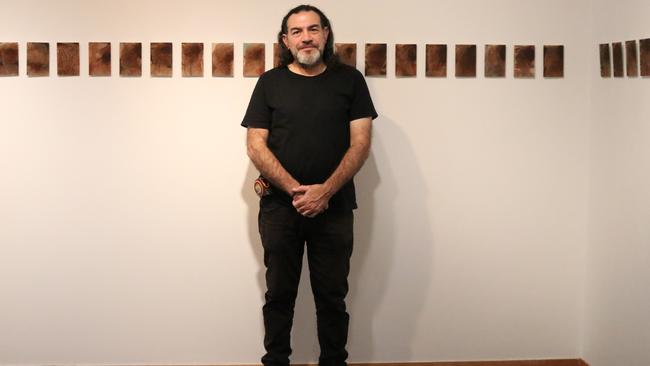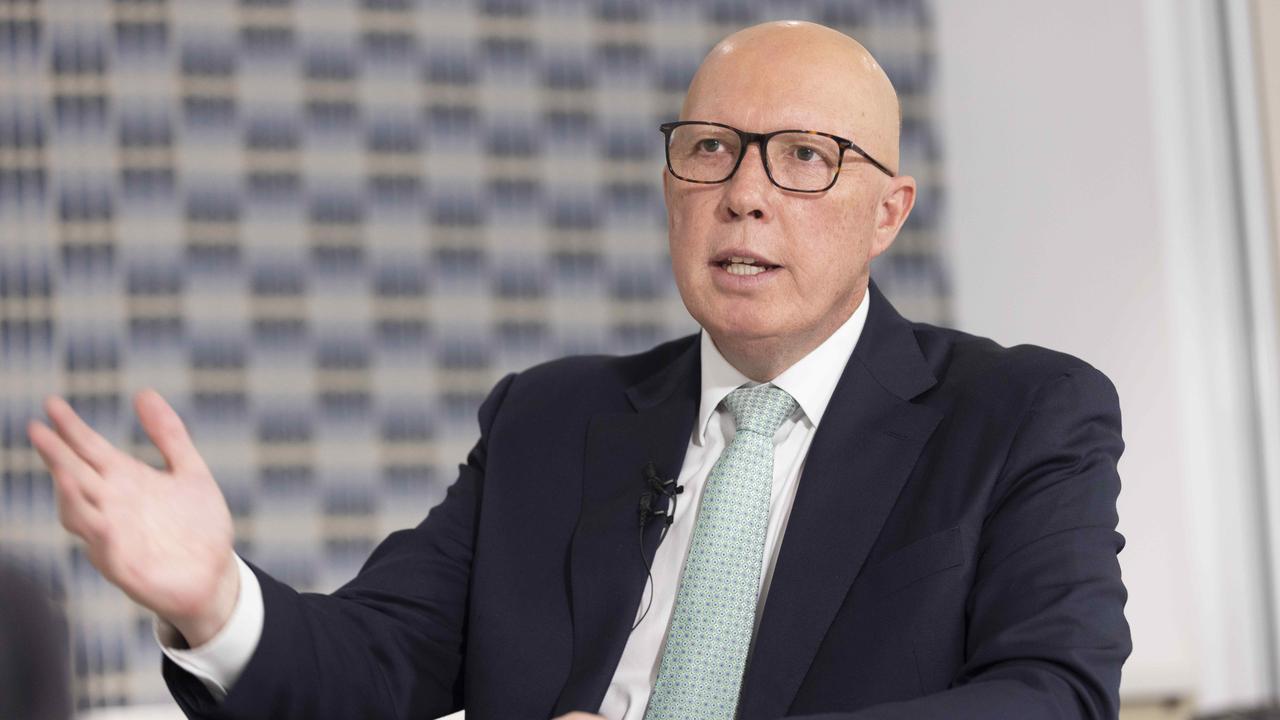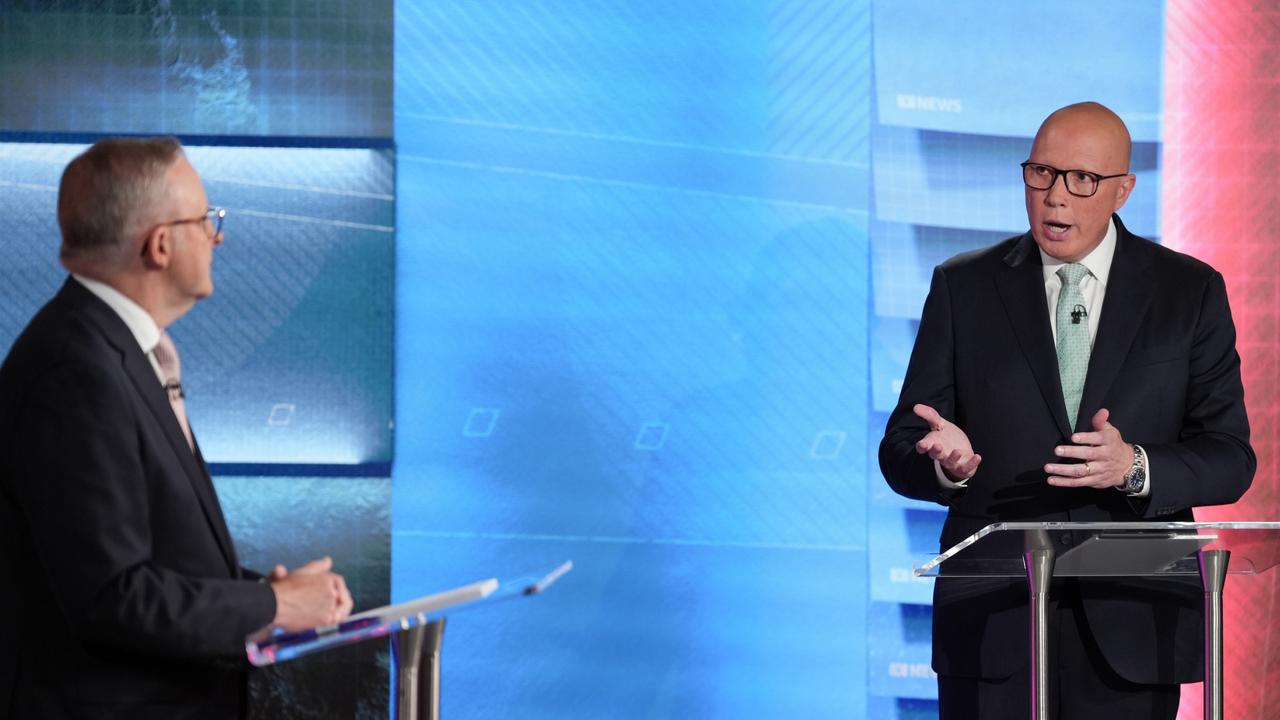The arts belong to us all, not just the activist elites

To have Australia represented at the “Olympics of the art world” by somebody who glorified the leader of the Hezbollah terrorists should have been beyond consideration. The decision to drop Sabsabi should have been a no-brainer.
But the resulting furore shows how dictatorial and overwhelming the ideological push of identity politics has been, and how completely it props up taxpayer-funded mediocrity.
As an independent artist from the Northern Territory, I’ve seen years of evidence that unless you are a creative with an axe to grind, a colonial patriarchy to smash or a diversity box to tick, you are generally considered unworthy of celebration or reward.
Instead, you are far more likely to be condemned by the gods of bureaucracy to continually try rolling your creative boulder up their increasingly steep mountain, only to have them kick it back down again.
I dream of an arts industry where success is based on talent, creativity and public demand – not political ideology aimed at a small elite and progressive audience.
Imagine a thriving cultural sector where independent musicians, filmmakers and artists flourish without having to rely on government handouts. That future isn’t just possible – it’s crucial.
The arts are too important to be monopolised by the left. It’s time for conservatives to step in, reclaim culture, strip away the wasteful bureaucracies that stifle creativity, and build an industry driven by freedom, merit and opportunity.
In 2023, the Albanese government pledged nearly a billion dollars to “revive” the arts sector, promising a golden age of Australian music, theatre and film. Two years and $950m later, there’s no sign of this so-called renaissance.
Independent musicians still struggle to make a living. Regional artists remain overlooked, with little meaningful investment in venues or industry support. Live music continues to suffer under overregulation, lockout laws and skyrocketing costs that are forcing venues to shut down.
Meanwhile, the bureaucrats are thriving. Arts funding is being funnelled into administration and consultancy fees, and politically motivated grants, rather than reaching the artists who need it.
Instead of fostering creativity, Labor’s arts policy has reinforced the same old problem: government control stifling innovation while pandering to activist movements.
Consider a conservative approach to unleash the arts through freedom, authenticity and innovation. Australia doesn’t need more government interference in the arts. It needs a market-driven revolution – one that rewards talent, encourages investment and allows artists to succeed on their terms.
Most importantly, grants should be awarded based on talent, merit and audience demand – not ideological checkboxes that favour political correctness over actual creativity. And instead of bloated arts agencies and politically motivated decisions, the focus should be on ensuring that funding actually reaches artists. Administrative costs must be capped and any arts body that cannot demonstrate tangible benefits to creators should be held accountable.
The arts industry should not be run by bureaucratic elites who dictate culture by favouring only those whose endeavours match a progressive laundry list of pet causes, while real artists struggle to make ends meet.
Rather than endless government handouts to those on progressive bandwagons, funding for the arts must be restructured to shed the current long-term welfare dependency model. Government grants should not serve as a lifetime pay cheque but as a stepping stone to self-sufficiency.

Musicians and artists who receive grants should be required to mentor emerging talent. A reinvestment model could be introduced, where successful artists contribute back to future funding, reducing the burden on taxpayers.
The arts should be a celebration of creativity, diversity of thought, and raw talent – not a government-run, taxpayer-funded ideological pet project.
Guided by a conservative vision, Australian artists would no longer have to rely on an inefficient and bloated system that benefits bureaucrats more than creators. Instead, they would be supported through policies that actually make a difference – less bureaucracy, stronger local content protections, tax incentives that encourage private investment, and regulations that protect musicians from AI exploitation.
Although claiming to be the champion for the arts, Labor has failed to create anything meaningful. Now it’s time for conservatives to take the stage.
The creation of a national Sound Australia Advisory Board, similar to what is being considered in NSW, would provide the crucial opportunity to reset arts policy, take culture back from bureaucratic elites, and put power where it belongs – in the hands of artists and audiences, not government. The approach would be simple: less government, more opportunity, and a thriving, independent Australian arts industry. That’s a creative future worth fighting for.
Colin Lillie is an award-winning singer-songwriter based in Alice Springs.





The luvvies’ uproar about Khaled Sabsabi being dropped from the Venice Biennale line-up is the latest proof – if anybody needed more – that Australian arts have been captured and controlled by left-wing bureaucrats and elites.